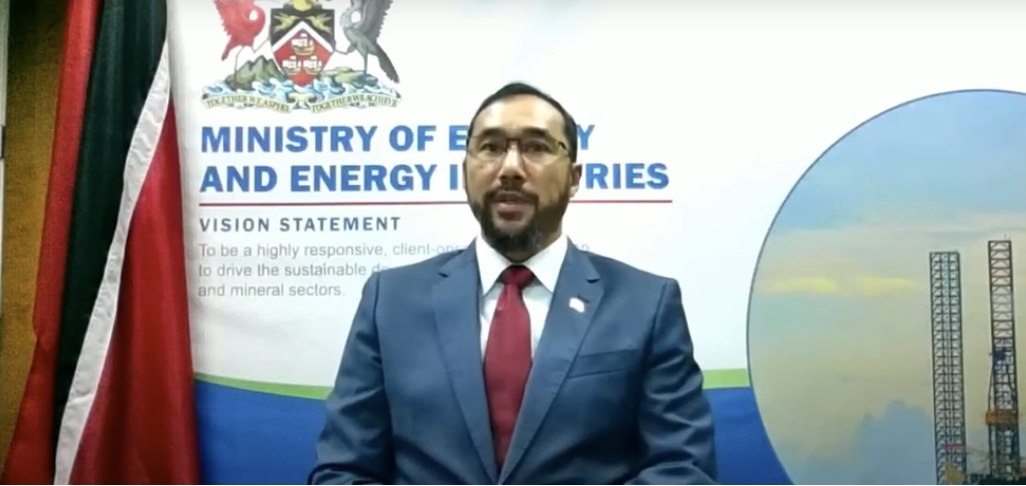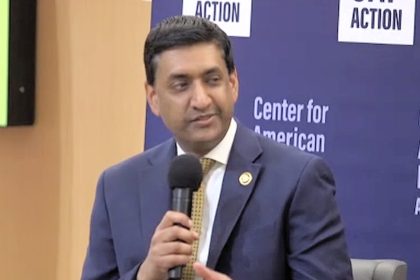Atlantic Council Lays Out Roadmap for Caribbean Energy Transition

WASHINGTON — In its quest for sustainable and reliable energy sources, the Caribbean, like much of the world, is at a critical juncture.
The region is plagued by high energy prices, heavy dependence on petroleum imports and an urgent need for affordable and consistent energy access. The Caribbean’s energy transition is critically important, not only in response to economic challenges but also as a matter of survival in the face of climate change.
“It is important that developed countries and the wealthy understand that we, the small island countries, understand firsthand the … effects of climate change,” Stuart Young, minister of Energy and Energy Industries for the Republic of Trinidad and Tobago, told the Atlantic Council last week.
“When you marry that with our particular need for energy security, in particular in the Caribbean region … [island nations] are at a transition point now where they have to make decisions as to what would generate their power needs for decades to come.”
Caribbean countries are looking to build bankable energy projects, modernize energy infrastructure and overcome stringent regulatory frameworks.
But while developed nations are transitioning to power generation that is primarily renewable, Young worries that those renewables would be too “costly and not always politically or technologically feasible” for his and other Caribbean island nations.
“All over the world, leaders are doubling down on their energy and energy transition plans,” Young said. “[What has] become clear is that Caribbean countries do not have the resources, technical assistance and technologies required to have reliable and affordable access to energy.”
As small island states, Caribbean nations face the imminent threat of rising sea levels, coastal erosion and unpredictable weather patterns. The ill effects of climate change underscore the urgency of transitioning to renewable energy sources that can mitigate environmental damage while providing reliable power.
“Energy security in the Caribbean is very tied to climate change,” Young said. “While we’re taking the battering from global climate change and dealing with increasing flooding, increasing coastal erosion and very unpredictable weather, of course, that also includes heat that we have not felt for centuries.”
Adding to the challenge is the economic viability of undertaking transformative renewable energy projects in countries with small populations.
“You cannot have small populations carry the high costs of energy security for this transformation and power generation,” Young said.
To address these pressing issues, Caribbean nations are working toward an energy transition that is creative, politically realistic and equitable. To assist, the Atlantic Council’s Caribbean Initiative recently published an issue brief, titled “A Roadmap for the Caribbean’s Energy Transition,” which outlines a five-step process for Caribbean countries to collaborate with partner nations, the business community, multilateral development banks and regional institutions to develop competitive and resilient energy systems.
The roadmap’s processes include assessing current energy needs with national- and regional-level energy modeling and analysis as a foundation for designing tailored energy solutions that align with national goals; transitioning to a modernized grid and moving toward distributed generation; diversifying state-owned utilities and allowing for competition in power generation to reduce costs and improve quality of service and reliability; leveraging concessional financing and international partnerships to make energy projects financially viable and sustainable; and scaling investment and regulatory frameworks to a national level to encourage the entry of potential developers.
Even with this guidance from the Caribbean Initiative at the Atlantic Council and its Caribbean Energy Working Group, an energy transition in the Caribbean will be complex, requiring an overhaul of the energy system for progress that is modest by international standards.
“The first world is moving more toward renewables, but [there is a] high cost of renewables and sometimes the need for a basket of renewables — because the sun isn’t always shining and the wind isn’t always blowing. When you marry that with small populations, the topic of bankability, feasibility and financial ability to finance these types of projects that would provide energy security is very very difficult for small populations,” Young reminded.
“We are desperate in this area, and in this region, to find the ability to help finance these projects. … Please don’t underestimate the region,” Young said, urging that the Caribbean region not be “left behind.”
You can reach us at [email protected] and follow us on Facebook and Twitter

























